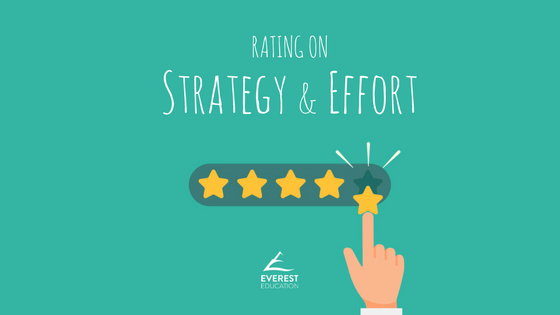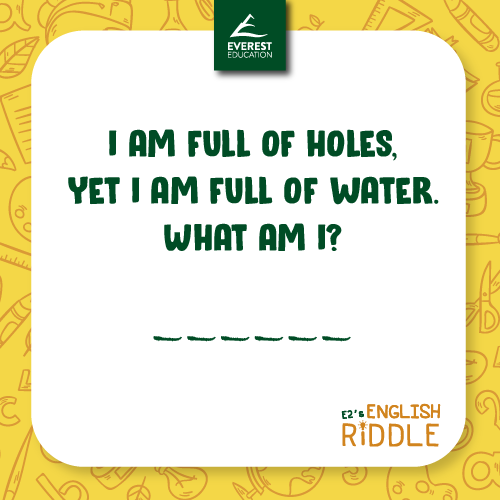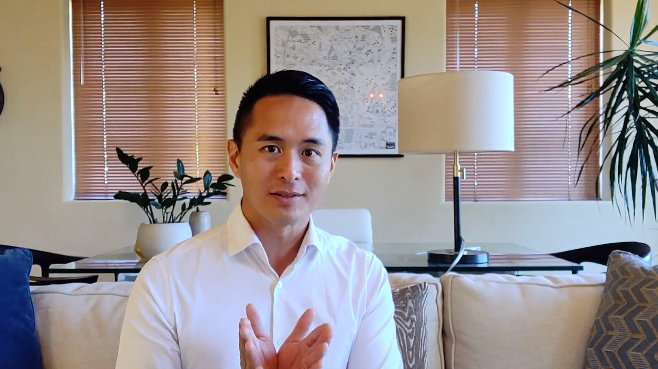Graduated from Harvard Business School and Stanford University, Mr Tony Ngo is our current Chairman and Co-CEO. He also has a greater job – being a dad of 2 adorable kids. Discuss about child learning, he shared with us one of his exercise to help his kids practice self-awareness and reflection at the very young age
My seven-year-old son is named Ian, and he loves to play soccer, and I constantly experiment ways to develop independent thinking and self-awareness. So naturally, I’ve experimented with his soccer.
After every soccer practice or every soccer game, I asked my son to very simple questions:
“On a scale of 1 to 10, how would you rate yourself on efforttoday?”
&
“On a scale of 1 to 10, how would you rate yourself on strategy today?”
Two years ago, when I first started asking him these questions after his practice one day, his eyes lit up and he exclaimed, “My effort was a 10, or maybe a 9!” But I disagreed. I had seen him fooling around, not paying full attention, or not running hard to the ball. So I told him son, “Today, your effort only looked like a 5.”
He looked a little surprised.
– So what did you think of your strategy?, I followed up
– Well maybe I could have done a little better, but it was definitely an 8.
Again I disagreed. While the other kids were practicing footwork and dribbling maneuvers, my son just booted the ball every time he came near it!. So I countered, “Your strategy was only a 4 today. In your excitement, you just kept kicking the ball as hard as you could whenever you came near it.”
Ian’s eyes drifted away from me, and he stared at the ground. He kicked the dirt like he did whenever he got distracted or uncomfortable.
– Why do you think I rated you only a 5 on effort and 4 on strategy?
– I don’t know. (Long, awkward pause.)
I organized my thoughts trying to remember the specific situations as examples of where he wasn’t putting enough effort or made strategic mistakes.
– Remember when Coach Eric asked you to line up for the passing drill? What were you doing?, I asked.
– I lined up behind everyone else.
– But you were running around, spinning, and looking around at other things.
– No I wasn’t!, Ian remarked in disbelief.
So I took out my phone to show him the video I had recorded of him doing just that. (I swear I’m not a Tiger Dad!) We then had a similar discussion around one of the strategic mistakes he had made, not using any tricks to evade opponents stealing the ball away.
After that first day I wasn’t sure if my experiment has been successful and if he had learned this lesson. Would he actually remember this? Would he actually try harder and focus more next time? Or would he continue running around and fooling around?
The second practice, we repeated the exercise again. This time the gap between our ratings was smaller: 7 vs. 5 for effort and 6 vs. 5 for strategy. Also, we talked about specific instances where he showed solid effort, and pointed out lapses when he looked tired or unfocused.
It’s far too early to know whether this will have a lasting impact, but at least I can confidently say that after about 2 years, self-reflection has become routine for my son.
Whenever we practice something, if we just go through the motions, the amount we learn is so much less in the pace at which we like so much less. But if we actively think about what we’ve done well and what we could do better, the rate of growth is much faster.
Rating yourself or having someone else rate you is very uncomfortable. But when we as teachers and parents do it out of love, without judgment, we create an opportunity for children to objectively critique themselves. This is such an important skill in order to be able to learn better and learn faster.
In my experience, the best teachers don’t “teach.” They coach and motivate. This way, students learn to enjoy the process of growth and reflection becomes a natural extension of their routine. They become active, hungry learners, and they develop a joy for the process.
This joy is the foundation for a lifelong love of learning, and it comes from knowing that you are growing personally. Whether we are learning soccer or algebra, having this approach to constantly get better is the embodiment of a growth mindset.
Source:
https://www.facebook.com/tngotrekker/videos/1231761590258331/











